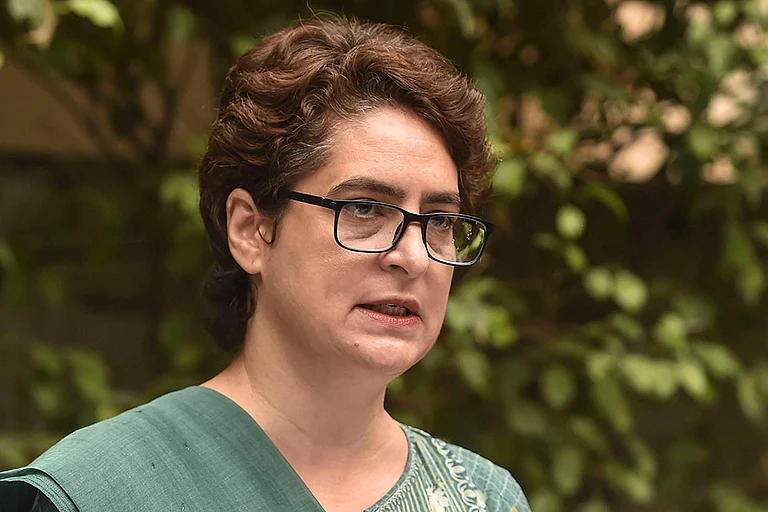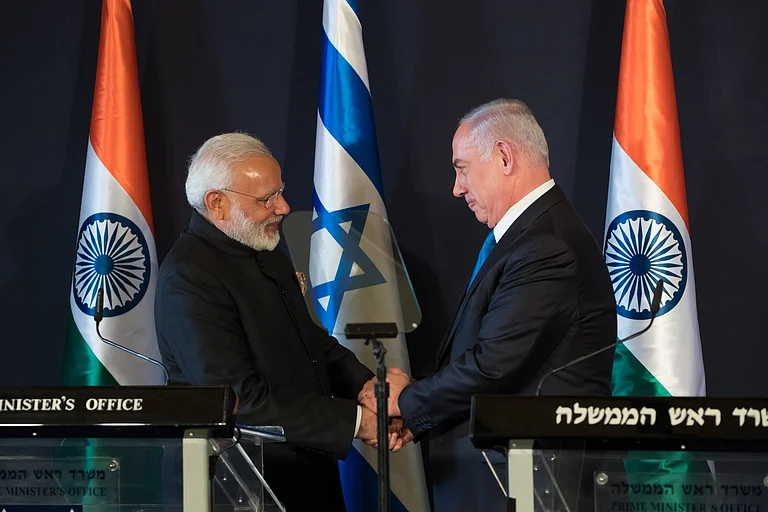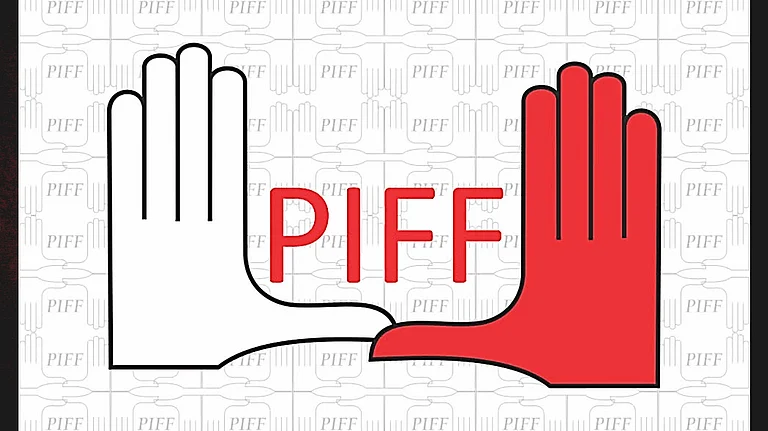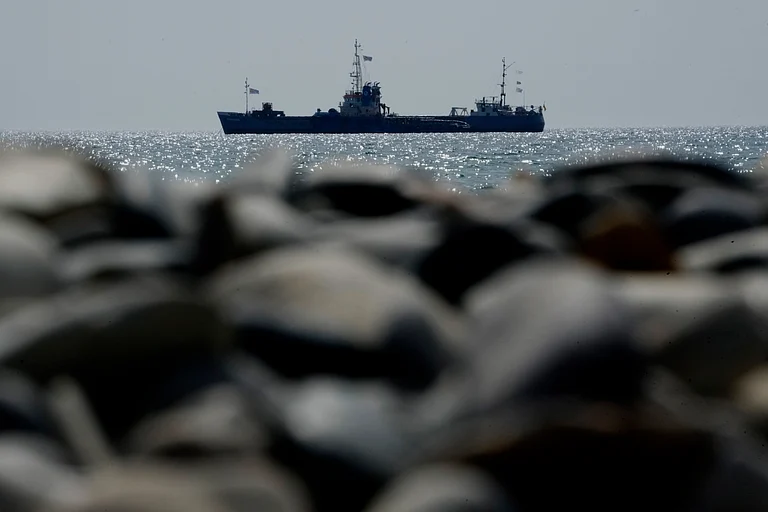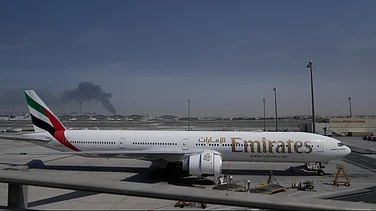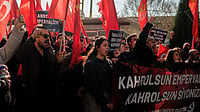
Summary of this article
Gaza’s war is now famine—residents face starvation, with aid points turning 'death traps'.
Hunger defines daily life—families survive on scraps while children cry for food.
Aid is failing—MSF reports shootings at distribution sites and hundreds of dead from hunger.
Having reported from conflict zones since the early 1990s—Kashmir, Syria, Palestine—I believed I had developed the emotional calluses required to carry on. But Gaza breaks you. Reporting from this besieged Palestinian strip is not about bullet trajectories, ceasefires, or negotiations. It is about starvation. It is about shame.
A few days ago, I called a fellow journalist in Gaza. We’ve exchanged notes for years, sometimes shared stories, and often grieved. This time, his voice wavered. “Brother,” he whispered, “I haven’t eaten in three days. As soon as I get a loaf of bread, I’ll call you.”
He never did. And I did not call again.
I sat with the phone in my hand, stunned—not just by his words, but by the quiet dignity with which he said them. It felt obscene to have disturbed him at that moment. What right does a journalist have to ask for a quote from someone who hasn’t eaten in days? That moment shamed me more than any checkpoint ever had. In that instant, I was no longer a reporter chasing a byline. I was a witness to a moral collapse.
Gaza today is not just about bombs or blockades. It is about hunger. A famine not born of drought or disaster, but designed, enforced, and militarised. It is not merely the stomach that is empty—it is the soul of the world.
For this write-up, I reached out to Abu Ramadan, 28, a resident of al-Nasr city in Gaza. His words were soaked in a mixture of bitterness and disbelief. When I shamelessly asked him what he would eat today, he replied: “Unfortunately, we still haven’t found an answer to what we might eat today. Every day brings its own fate. Sometimes a scrap of stale bread, sometimes nothing. It’s all dipped in bitter za’atar—that’s if you even have za’atar.”
I asked what the hunger felt like. He paused, then gave me a metaphor I will never forget: “It’s like being stabbed in the heart while your hands are tied. You watch your children cry for food, and you can’t promise them anything. There’s no comfort, just silence.” You have money in your pocket, but there is no food around to buy. He called the aid distribution points “death traps”. “Everyone knows the risk. You either return with a white bag of flour—or you’re carried back in a white shroud. Still, we go. We have no choice.”
Dealing with hunger-related illness in Gaza has become a dead end. It’s not a matter of lacking medical expertise—the doctors are skilled, dedicated, and doing all they can. But under unrelenting siege and total deprivation, how does one prescribe nutrition to someone who hasn’t seen real food in weeks? “This isn’t healing,” says Ramadan.
“It’s a slow death, and we’re all watching it happen.”
Yet, even amid this collapse, he insists, there is still goodness in people. “If someone has a piece of bread—and it’s never truly ‘extra’—they’ll share it with their neighbour, trusting that tomorrow the gesture will be returned. When we go out toward the death traps, we go together. If one of us is martyred, the other brings the flour back—so both families can survive.”
But what remains of survival in a place where the idea of “life” itself has been stripped away?
Ramadan reflects on the transformation: “It’s not living—it’s just surviving. Everything has changed, from the smallest routines to the deepest parts of who we are. Since hunger took over, even looking in the mirror has become unbearable. Our faces no longer look like ours—just hollow, exhausted shadows.”
The world, he believes, still doesn’t truly grasp what is happening. “Even with the media coverage, no one really understands. Because if they did—if they truly saw us—this war wouldn’t still be going on. Not even for one more day.”
And then, with a voice full of urgency and accusation, he warns: “Wake up—just wake up, before history curses you. One day, you may find yourselves eating worse than we ever did. And when that day comes, we will be your accusers on Judgement Day.”
In a searing new report, Médecins Sans Frontières (MSF) describes the Gaza Humanitarian Foundation (GHF)—an Israeli-US-backed scheme for distributing aid—as a “laboratory of cruelty”. They document 1,380 casualties from GHF sites in just six weeks. Seventy-one children were treated for gunshot wounds. Many were shot in the chest or head.
“This is not aid. This is orchestrated killing,” MSF wrote bluntly.
The precision of the injuries—headshots, chest wounds—indicates that these are not accidents. Aid sites have become theatres of targeted dehumanisation, often “secured” by American private contractors. According to survivors, the message is clear: starve, or die trying not to.
As images of aid trucks roll across television screens, the truth on the ground tells a different story—one of chaos, hunger, and humiliation. “Children’s stomachs remain empty,” writes Gaza-based journalist and author Rasha Abou Jalal, piercing through the fog of curated footage and diplomatic posturing.
Since March, when Israel imposed an aid blockade amid stalled ceasefire talks with Hamas, Gaza has plunged into an engineered starvation. According to Gaza’s Health Ministry, at least 200 people—including 97 children—have died of hunger. And now, even the so-called “humanitarian pause” offered by Israel rings hollow, as most aid trucks entering the enclave are either looted en route or diverted by armed gangs.
Aid workers estimate that 500-600 trucks a day are needed to meet Gaza’s basic needs. The actual number that is allowed to cross is less than 100.
“What’s happening is a complete farce,” says Khaled Tanira, a father of six. “A military plane flew over our neighbourhood and dropped seven air balloons of aid. Thousands fought over them—although the supplies could barely feed a few dozen families.”
Abou Jalal shares her own ordeal: two days of waiting for food aid, ending in defeat—buying a kilogram of looted flour for $25, once sold for $1. In the new Gaza economy, baby formula sells for $80 a can, up from $10 before the war. Mothers have sold their wedding bands and gold heirlooms to feed their children.
Even when trucks do enter, they are often ambushed before reaching the UN warehouses. As Talal Okal, a columnist for Gaza’s Al-Ayyam, put it: “Unless land access for aid improves significantly and security is restored, acute malnutrition and hunger will continue to worsen across the strip.”
International airdrops—some hailed as moral gestures—are widely viewed in Gaza as tragic performance art. Doctors Without Borders called the airdrops “notoriously ineffective and dangerous”. They’re theatrical—but not redemptive.
A nurse at one of the MSF clinics recounted a case of a five-year-old boy, crushed in a crowd, his face blue from asphyxiation. She described another child, just eight, with a bullet wound through the chest. “We treat only a fraction of those wounded,” she said. “But we see enough to know this is no longer about war. This is something else. Something darker.”
Khadija Khudair, a 42-year-old mother, told a reporter: “My four children are shrinking. We eat one loaf of bread every three days. And that’s on good days.”
This famine is not just physical. It is moral. It is political. Not a single truck enters Gaza without the permission of America and Israel. This is not an unfortunate outcome of war—it is the strategy. A weaponisation of hunger.
Palestinians are now reduced to waiting for Israeli trucks to bring bread into their own soil. It is a humiliation no nation should endure.
As a journalist, I find myself unable to write. The hunger has silenced my pen. What can I report that does justice to a father watching his child waste away? Or a teenager gunned down while clutching a sack of flour?
The story of Gaza has a new chapter. Its title is simple. Hunger.
And when future generations read this chapter, they will not ask why Palestinians were angry. They will ask: how did the world keep eating while Gaza starved? And yet, the world continues to be fed an illusion.
(Views expressed are personal)
MORE FROM THIS ISSUE
This article appeared in Outlook Magazine's 01 September 2025 issue, The Tariff Weapon, as ‘Brother, I Haven’t Eaten In Three Days’: Gaza Starves As World Watches.
Iftikhar Gilani is a journalist currently based in Ankara, Türkiye





